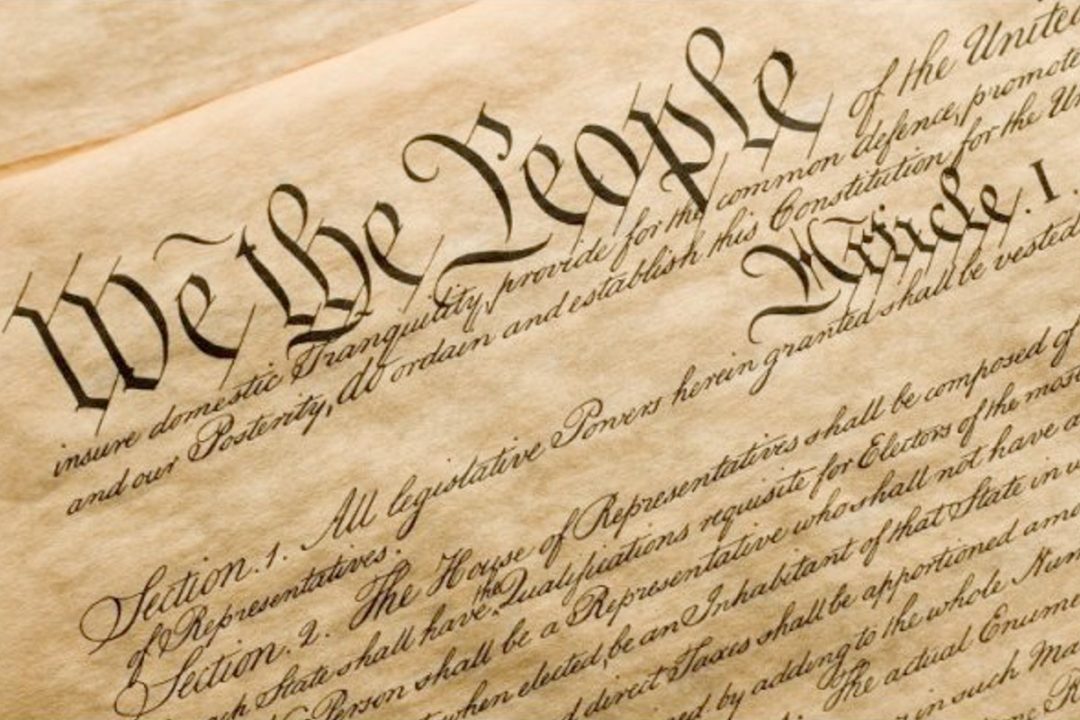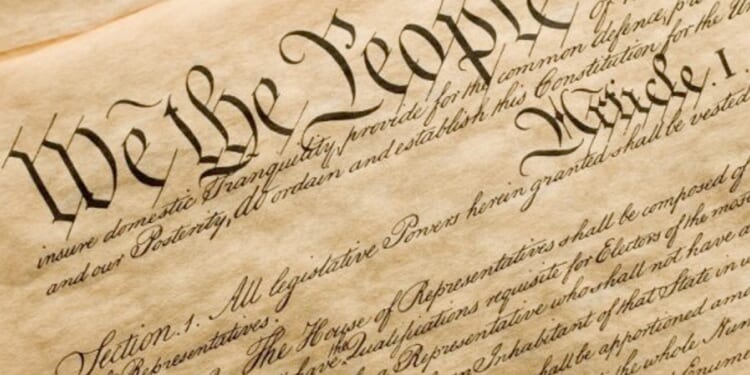
It has essentially been said that you can have a living Constitution or a surviving Republic.
But you can’t have both.
And, a University of Tennessee civics expert states in so many words, today’s Supreme Court will increasingly choose civilizational survival.
This means that a majority of the Court rejects the “living document” notion. (Generally marketed via the euphemistic label “pragmatism.”) This holds that the Constitution can be interpreted based on “what’s best for society” — according to judges, of course.
Related and unsaid: People will speak of the various legal-philosophy “isms.” Thus may we hear of jurists who are constructionists, structuralists, legal realists, consequentialists, purposivists, and pragmatists, among other things. In reality, though, there are only two kinds of judges: good judges and bad judges.
Good judges do their job; meaning, they issue opinions based on the law, prioritizing the framers’ original intent. Bad judges don’t; they instead often impose from the bench their own values, served up with pseudo-intellectual veneers.
Doing the Job
As for the current story, The College Fix reports, providing a summary:
Professor Morgan Marietta predicts a shift towards originalism in the Supreme Court’s approach this term, marking a departure from “living Constitutionalism”….
Recent appointments by President Trump have contributed to this shift, as Justices [Neil] Gorsuch, [Brett] Kavanaugh, and [Amy Coney] Barrett generally support originalism. Kavanaugh and Barrett both replaced justices inclined to “living Constitutionalism[.]”
Cases on issues such as transgender rights, campaign finance, and voting are expected to reflect the polarization in society and the evolving debates on these critical topics.
Marietta then added perspective. As the Fix relates:
“The originalist shift is revolutionary in the sense of the dramatic change and broad ramifications for public policy, but it is not a new or unprecedented approach to reading our law,” Professor Marietta said via email.
This shift is “but a simple return to original meaning in principle,” he said.
The academic explained that until just some years ago, most justices considered the Constitution “living,” fancying it an “evolving document.” He then warned of this approach’s danger. Per the Fix again:
“If a branch of the government can rewrite the contract on the grounds that it is ‘living’ or ‘evolving’ in a way determined by them, obviously that will lead to abuse of power,” he said. “If one side of a contract can rewrite the agreement, there is no agreement at all.”
South Texas College of Law Professor Josh Blackman added further perspective. The “living document” lie was the “revolution,” he told the Fix. Returning to original intent is something else: a “restoration.”
Usurping Power
To fully grasp the living-document notion’s folly, however, an analogy is in order. Regarding this, Chief Justice John Roberts once correctly said that a judge’s role is only to call “balls and strikes.” (This was before he decided that a ball could be a strike when striking a blow for statism.) Expanding on this, judges are in fact like baseball umpires, whereas the players and spectators are akin to the people. The sport’s ruling body is a sort of legislature, and the rule book is essentially its constitution.
Now, imagine that an umpire “rules” contrary to the rule book. He refuses to call a player out after three strikes because he believes it’s too few. (“Hitting a baseball is said to be the hardest task in sports!”) Would we flatter his falsity and legitimize his legerdemain by calling him a “pragmatist” with a “living document” philosophy? No, we’d label him a bad umpire who is derelict in his duty and usurping the rulemakers’ role. And he’d be fired.
It’s likewise with judges. The issue is, too, that many of them aren’t satisfied just being “umpires,” arbiters of balls and strikes. They think themselves brilliant and want more from life; they desire to be change agents, ground-breakers, to make their mark. It’s often just ego.
Moreover, this de facto judicial oligarchy usurps the people’s power. That is, the Constitution can and does live, at times, via the amendment process. This process (there are two of them, actually) is difficult and drawn out precisely because that helps ensure that before any change is made, most Americans support it. Judges have no legitimate right to unilaterally decide when the Constitution “comes to life”; that’s the people’s role.
What’s in a Word?
Speaking of judicial fancies, unaddressed by the Fix is that not all “originalism” is created equal. That is, there’s originalism emphasizing original intent and that which emphasizes “original public meaning,” aka textualism. Many judges today subscribe to the latter, and, in fact, it’s prevalent at the Supreme Court. Neil Gorsuch and Amy Coney Barrett are noted textualists.
The issue? Textualism subordinates original intent to what is written when the two appear unaligned. The problem with this is best illustrated with another analogy.
A couple has two young children, a boy and girl. The little lass runs to her father one day, sobbing: “Tommy hit me!” The father, furious, pulls his son aside and scolds, “Don’t you ever hit Sarah again. This time you’re going to your room — next time you’re grounded for a month.”
Well, Dad leaves shortly thereafter on a business trip. A few hours later, Sarah returns, limping, tears streaming: “Tommy kicked me!”
So the mother, on scene, storms in. “You’re in big trouble, young man!” Tommy, though, looks up, unperturbed, and says “No, Mom. Dad said don’t hit Sarah. He didn’t say don’t kick her.”
The mother pauses, blinks, and then, smiling, ruffles the boy’s hair. “Well, ya’ got me there, kiddo!” she replies. “That’s some good lawyering!”
That’s also textualism.
Where’s Common Sense?
While textualism is vastly preferable to the living-document notion, it also trumps the people’s will. Why? Because the intent of a certain law’s framers — the people’s elected representatives — could be crystal clear. Nonetheless, textualists may ignore it if, as with Tommy’s dad, those framers weren’t precise enough in their phraseology. Does this serve justice?
The kicker (no, not Tommy) is that how to proceed isn’t rocket science. If the intent of a given law’s framers is plain, it must prevail. If it’s unclear, then the text can be the deciding factor.
Of course, prerequisites for this are that judges will be honorable, dutiful, and intellectually honest. And if too many are emotion-driven ideologues on the side of those delivering the kicks, the trauma to our Republic can be fatal.











